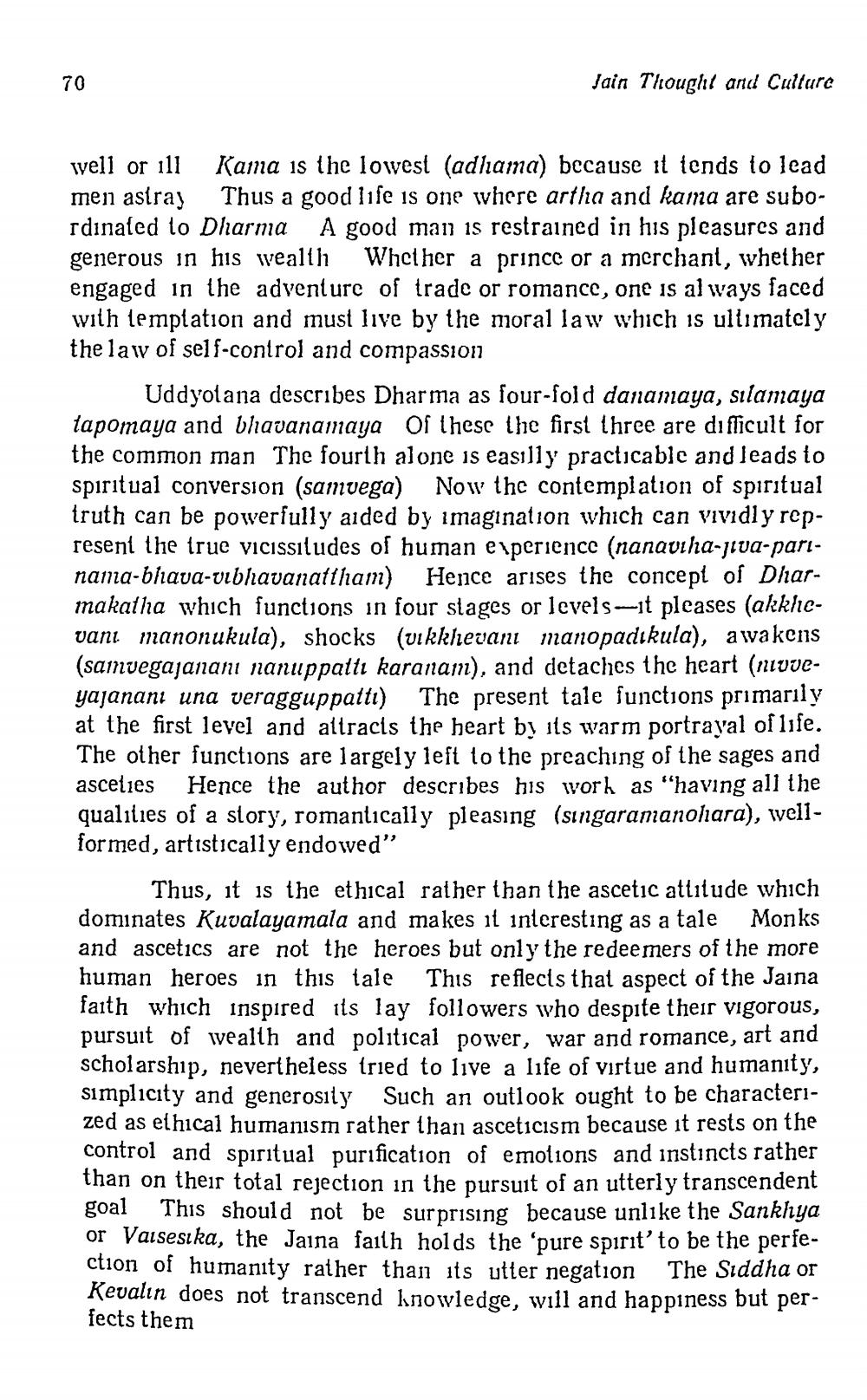________________
70
Jain Thought and Culture
well or ill Kama is the lowest (adhama) because it tends to lead men astray Thus a good life is one where artha and kama are subordinaled to Dharma A good man is restrained in his pleasures and generous in his wealth Whether a prince or a merchant, whether engaged in the adventure of trade or romance, one is always faced with temptation and must live by the moral law which is ullimately the law of self-control and compassion
Uddyotana describes Dharma as four-fold danamaya, sılamaya tapomaya and bhavanamaya Of these the first three are difficult for the common man The fourth alone is easilly practicable and leads to spiritual conversion (samvega) Now the contemplation of spiritual truth can be powerfully aided by imagination which can vividly represent the true vicissitudes of human experience (nanaviha-jiua-parinama-bhava-vibhavanattham) Hence arises the concept of Dharmakatha which functions in four stages or levels-t pleases (akkhevani manonukula), shocks (vikkhevant manopadikula), awakciis (samvegajanani nanuppattı karanam), and detaches the heart (nivveyajanani una veragguppatti) The present tale functions primarily at the first level and attracts the heart by its warm portrayal of life. The other functions are largely left to the preaching of the sages and asceties Hence the author describes his work as "having all the qualities of a story, romantically pleasing (singaranianohara), wellformed, artistically endowed"
Thus, it is the ethical rather than the ascetic attitude which dominates Kuvalayamala and makes it interesting as a tale Monks and ascetics are not the heroes but only the redeemers of the more human heroes in this tale This reflecis that aspect of the Jaina faith which inspired its lay followers who despite their vigorous, pursuit of wealth and political power, war and romance, art and scholarship, nevertheless tried to live a life of virtue and humanity, simplicity and generosity Such an outlook ought to be characterized as ethical humanism rather than asceticism because it rests on the control and spiritual purification of emotions and instincts rather than on their total rejection in the pursuit of an utterly transcendent goal This should not be surprising because unlike the Sankhya or Vaisesika, the Jaina faith holds the 'pure spirit to be the perfection of humanity rather than its utter negation The Siddha or Kevalın does not transcend knowledge, will and happiness but perfects them




